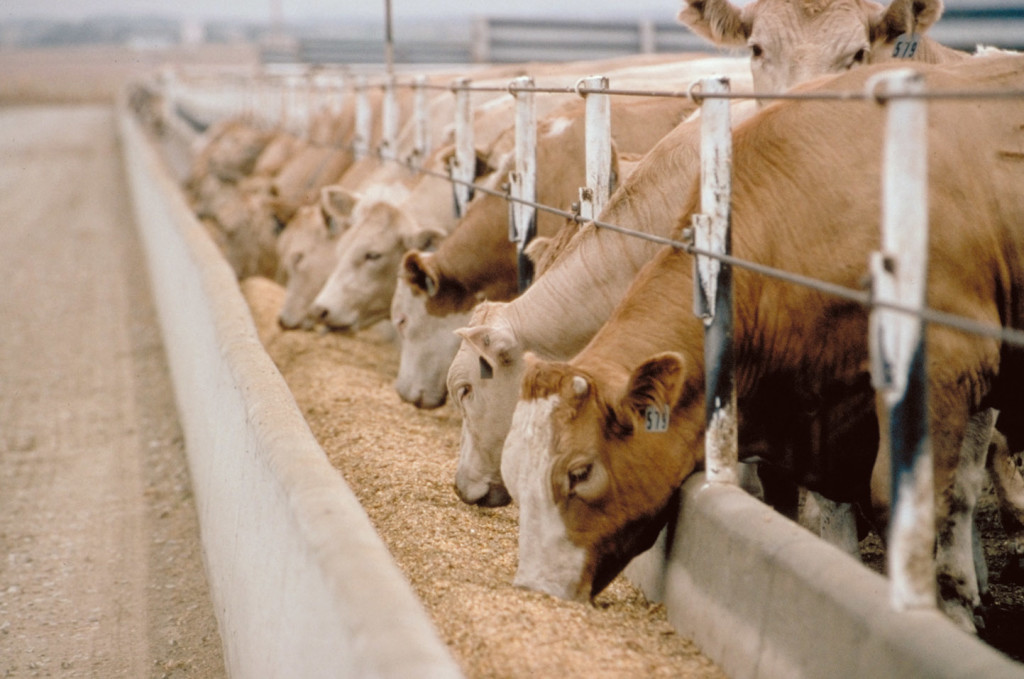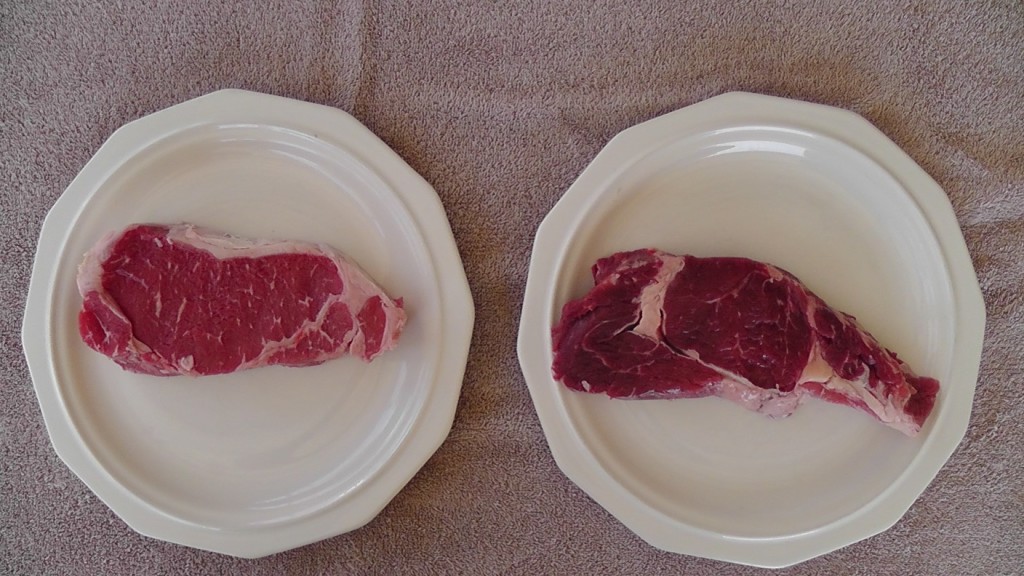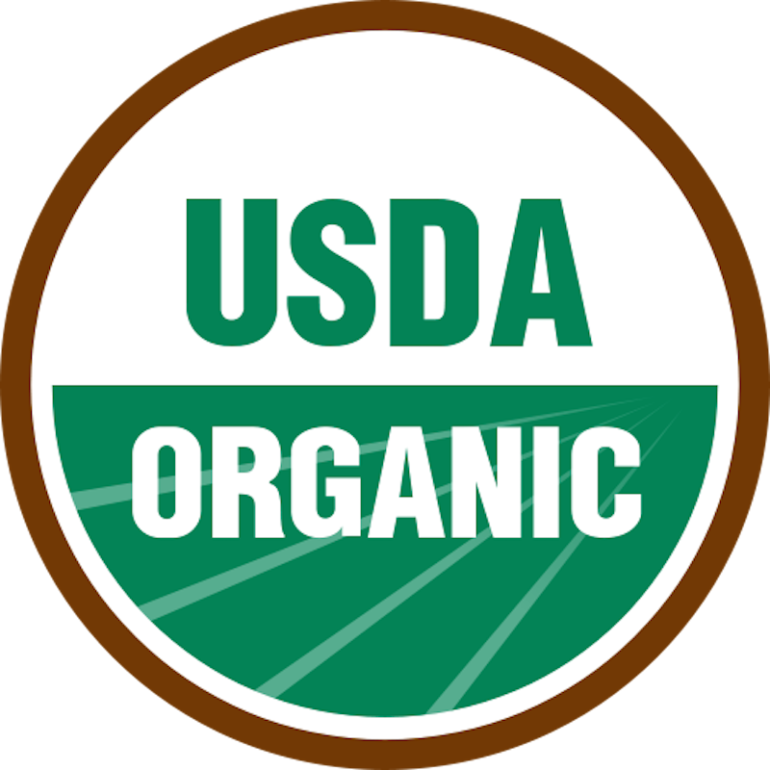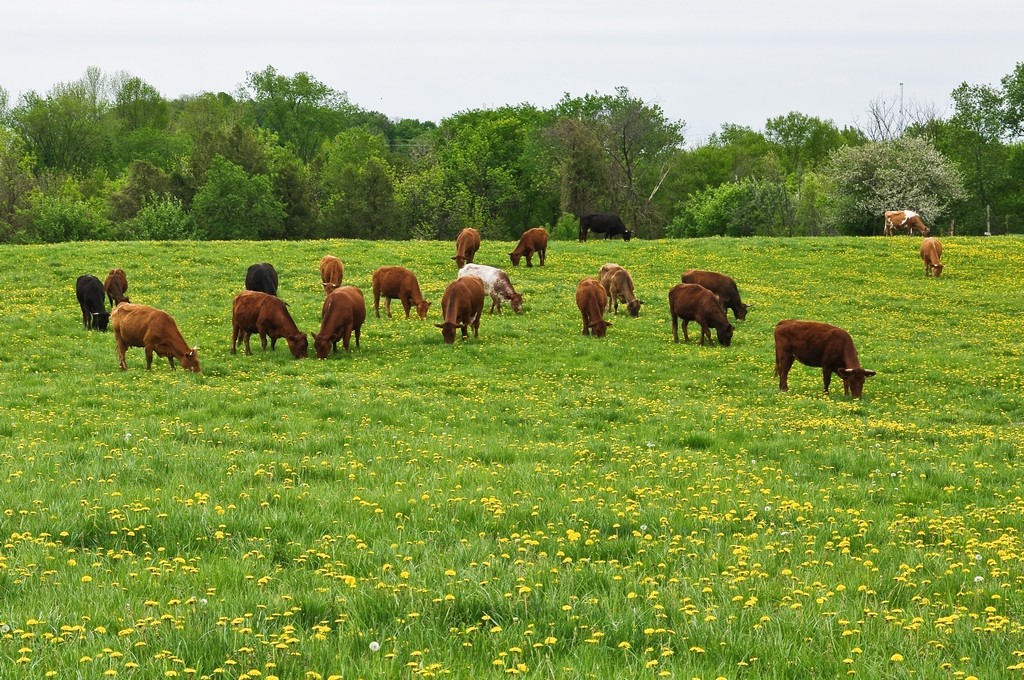If you’ve ever searched for anything food-related on Netflix, titles like Food Inc. or Food Matters have probably popped up once or twice. These aren’t your typical food-porn-ridden cooking shows. In fact, the subject matter of these documentaries might be enough to make you abstain from food altogether.
These films highlight the unhealthy nature of the modern-day food industry with one of the most disturbing practices being the way meat makes it onto our dinner plates.
When we think of farms, utopic scenes of sprawling green pastures usually come to mind. However, the vast majority of animals raised for the meat we buy at the grocery store spend most of their lives in feedlots. In feedlots, animals are packed together in a confined area, often to the extent where they can hardly move. Since these crowded quarters are breeding grounds for infection, animals are often given large doses of antibiotics.
In addition, growth hormones are also administered to ensure animals gain weight quickly, decreasing the amount of time it takes to get meat onto the store shelves.

Photo courtesy of wadenaswcd.org
While these practices save money for meat producers, they’re terrible for the animals involved and are also bad news for the consumer. Think of it like this: You’re filing into a gymnasium with a hundred other students to write a final exam. It’s crowded, and tensions are running high. Now, imagine living in this pre-exam purgatory all the time – it pretty much describes the vibe of a feedlot.
Just like humans, when animals are put into stressful situations, they produce stress hormones such as cortisol. Not only is this inhumane, but eating meat saturated in stress hormones may have health implications for the consumer as well. A ton of research as been done about the negative health effects of excess cortisol, like increased risk of high blood pressure, obesity, cancer and pretty much any other chronic health condition you can think of.
While the cortisol content of feedlot-raised meat increases, the flavor and quality of the meat decreases. Animals that spend the entirety of their lives standing still being force-fed growth hormones to gain as much weight as possible will have a higher fat content and will taste differently compared to pasture-raised animals.
Pasture-raised animals actually get to use their muscles to walk around, resulting in a lower fat content and more flavourful taste. Another reason for this taste difference is that feedlot-raised animals are usually fed a grain or corn-based diet, whereas as pasture-raised animals eat grass.

Photo courtesy of suburbanstoneage.com
So is there any way to tell just how that pack of chicken breasts ended up on the shelf at the grocery store? The short answer is no. Right now, a few certifications exist for indicating the nature of meat farming practices to consumers, but what these certifications actually stand for are murky, at best.
While “Certified Organic” meat sounds wholesome, the only requirement for this certification is that animals are fed organic food – living conditions and environmental practices fall outside the scope of this seal. Although a “Certified Humane” certification does exist, the standards used to determine what is considered a “humane” living environment remains unclear.

Photo courtesy of wikipedia.com
So what options exist for a student who wants to eat ethically and sustainably raised meat? Besides pulling a Katniss Everdeen and hunting your own food, your best bet is to do some research on local farms in your area. Inquire about their farming practices, or better yet, visit the farm and see for yourself.
Farmers who care about the welfare of their animals and are passionate about providing humanely-raised, quality meat will be happy to show you around. While the options at most supermarkets are pretty abysmal, many local butchers and specialty food stores are beginning to offer meat from local and ethical farms.

Photo courtesy of laeppleorganic.ca
Yes, ethical meat will cost more than the going rate at the supermarket. However, there are ways to make ethical meat consumption more student-budget friendly.
For starters, get the cheaper, less processed, cuts of meat. Or better yet, purchase an entire chicken as opposed to just pre-packaged portions. Sure, it might be less convenient than the boneless, skinless chicken breasts you’re used to, but one chicken can provide you with almost enough meals for the school week (and a killer bone broth).

Photo by Hannah Giardina
The take home message: eating humanely might take a little more effort, but the benefits are well worth it. Be mindful about where your food’s coming from — your body, the animals and the environment will thank you.


